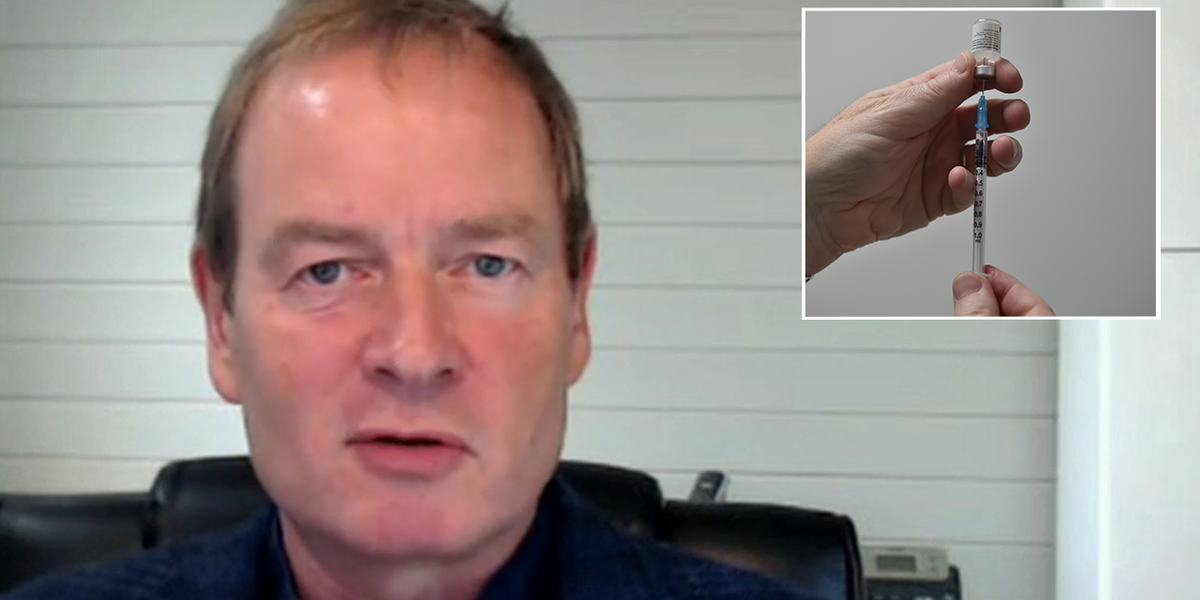The lawyer representing a family currently locked in a legal battle with the NHS over a bid to sedate a Down’s syndrome man to give him a Covid vaccine has spoken to GB News about the proceedings.
Adam, whose name has been changed to protect his identity, has been drinking cups of tea or orange juice secretly laced with drugs since 2021 to allow doctors to administer the AstraZeneca vaccine and boosters.
The man, who is in his thirties, is said to ‘lack capacity’ to make decisions for himself, according to a series of Court of Protection orders.
His mother is now taking legal action against the local integrated care board, claiming they are “forcibly” vaccinating him, something “tantamount to assault”, the Telegraph has reported.
Stephen Jackson said the decision to administer the jab ‘doesn’t make sense’
GB NEWS / PA
Speaking on GB News, Stephen Jackson, who is representing the mother in her legal battle, told Bev Turner that the NHS has Adam’s best interests in mind.
“It seems to be a handful of people stuck in 2021”, he said.
LATEST DEVELOPMENTS
“Adam has Down’s syndrome, moderate learning disabilities and autism. But it does mean he can hug people, he enjoys tactile response, and he can say if he wants something or doesn’t.
“He can say if he doesn’t want medical treatment, and that is what he does. He recognises the needle in the picture book and says, ‘no thank you’.
“He doesn’t live with his mum. He lives in a care residence and the authorities effectively have control over his care.
“Everyone seems to have the same objective. I don’t criticise that. The objective of the courts and the authorities is to look after Adam in his best interests. But how is that determined?
Stephen Jackson joined Bev Turner on GB News
GB NEWS
“The Court of Protection is supposed to give a voice to people who don’t have a voice otherwise to respect their dignity. If we look at Adam’s risk group, his one isn’t particularly vulnerable.
“About 16 per cent of people in his risk group said ‘yes’ to the booster shot last autumn and winter. How is it that the court are telling us that if Adam could speak for himself and understand this, he would be the outlier who says yes? It doesn’t really make sense.”
Due to his conditions, the methods of vaccinating Adam were approved by a court in 2021 as being in “his best interest”.
His mother tried to fight the ruling, but the judge decided she was in no position to rule on the efficacy of the vaccine.
Before the court order was made, Adam was repeatedly asked if he wanted the vaccine, to which he said no.
However, the care facility claimed he had ‘little understanding’ of the situation.
“On all occasions when a picture showing a vaccine being administered was used, AD [Adam] shook his head and said ‘no’,” one ruling notes.
It adds: “However, he demonstrated limited understanding of the information given to him about the Covid-19 virus.”
GB News has approached the UKHSA (UK Health Security Agency) for comment.

